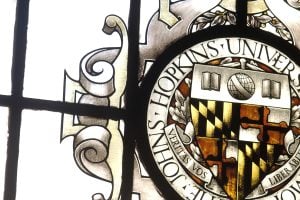
Three faculty members have been selected for a Defense Advanced Research Agency (DARPA) Young Faculty Award. These awards aim to develop the next generation of academic scientists, engineers, and mathematicians who will focus a significant portion of their careers on national security issues.
Yinzhi Cao, an assistant professor in the Department of Computer Science who is affiliated with the Johns Hopkins University Information Security Institute and the Institute for Assured Autonomy. His project was “Abstract Modeling of Control- and Data-flow Guards of Inactive Vulnerabilities via Symbolic Object Graph.” His research focuses on the security and privacy of our web, network, and mobile systems.
Yun Chen, assistant professor in the Department of Mechanical Engineering and member of the Johns Hopkins Institute for NanoBioTechnology and the Center for Cell Dynamics at the Johns Hopkins University School of Medicine. Her project was “Fibrosis, Inflammation, Revascularization, and Migration (FIRM) Modulation for Muscle Regeneration.” Her research focuses on studying how biophysical and biochemical factors are coordinated to achieve homeostasis, or to facilitate disease, across molecular, cellular and tissue levels. She directs the Mechanical Engineering of Wet-materials (MEOW) Lab that works to develop multiscale, multimodal imaging tools to investigate how mechanics integrate with other biophysical and biochemical factors to sustain normal physiology or to cause pathology.
Gregory Falco, assistant professor in the Department of Civil and Systems Engineering and a faculty member in the Institute for Assured Autonomy, who also holds an appointment at the Applied Physics Laboratory in the Asymmetric Operations Sector. His project was “Orbital Resilient Blockchain Interagent Transaction Service (ORBITS) Architecture: A Resilient, Zero-Trust Architecture for Hosted Payloads and Space Infrastructure as a Service,” about enabling cooperative engagement of untrusted parties–or even adversaries–across space infrastructure in the same way we experience cloud services or other computing infrastructures. His research focuses on mission-resilience autonomy for applications where failure is not an option. He builds cybersecure and trustworthy AI-enabled systems to accomplish high-criticality objectives in aerospace and defense.